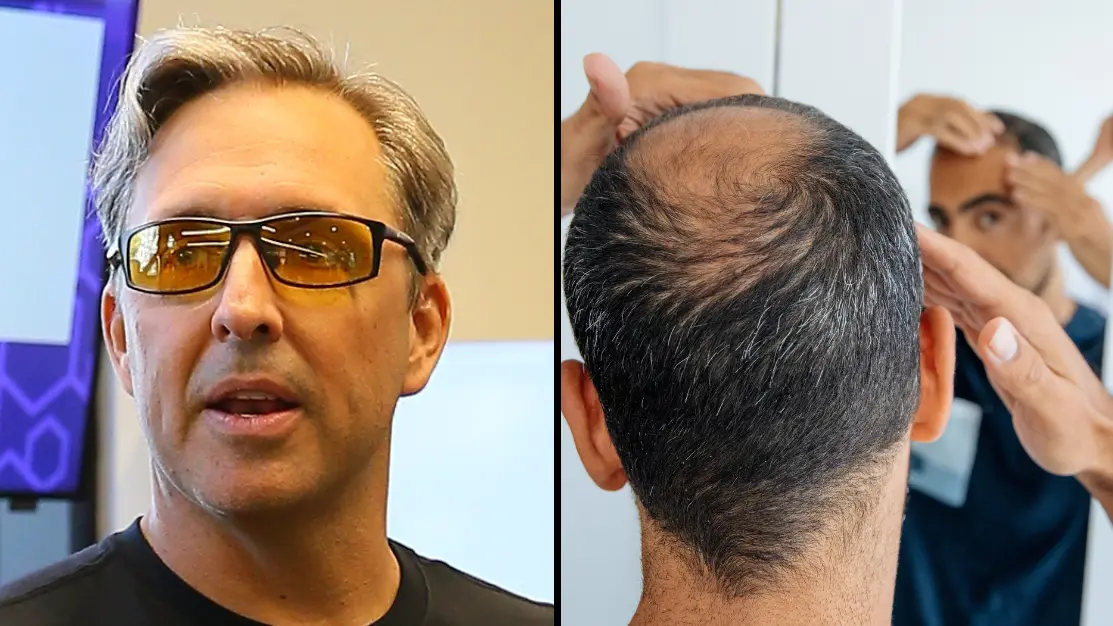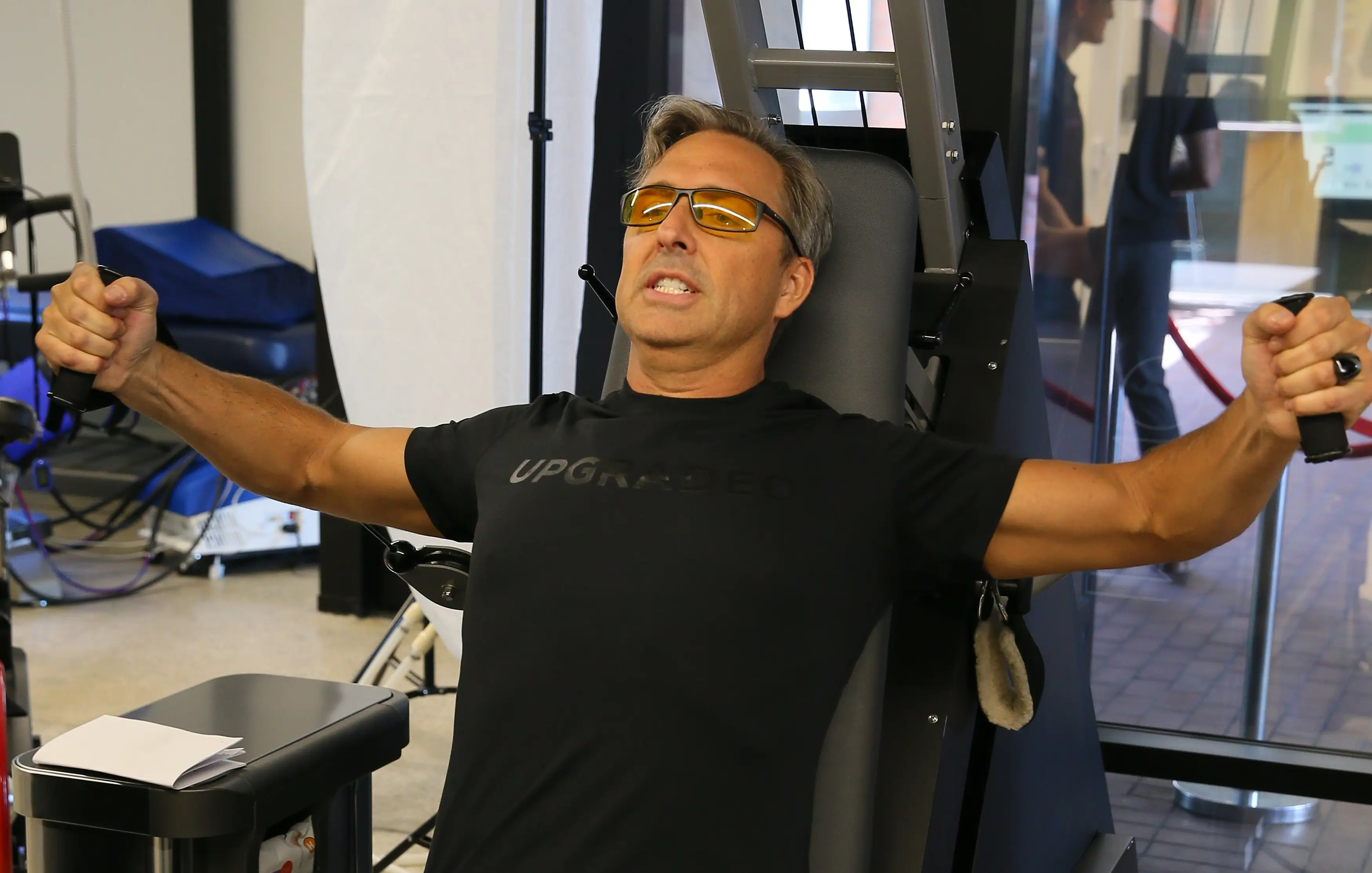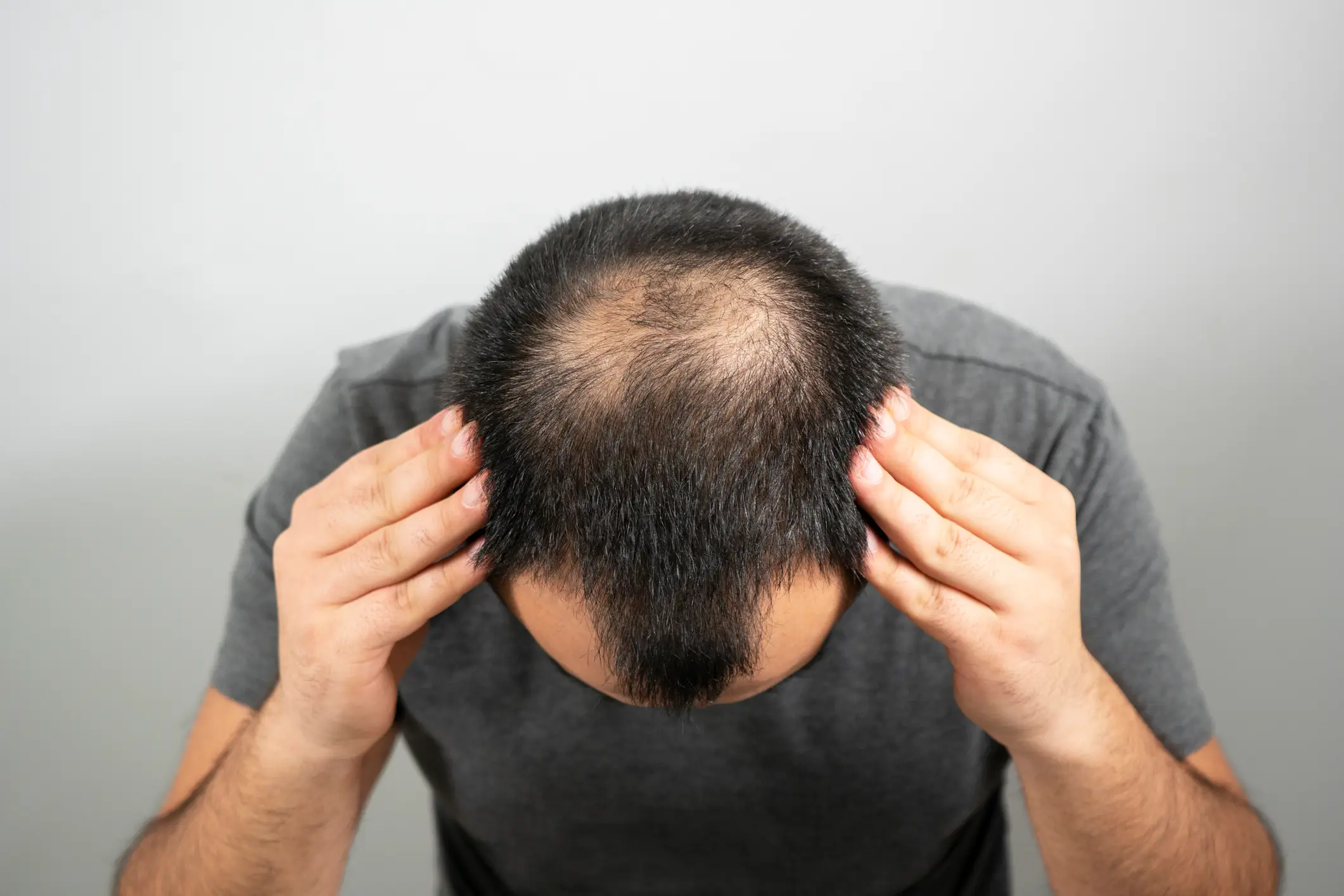
The inventor of 'biohacking' has revealed an 'easy' way to fix hair loss in your younger years, with many men impacted by the issue in their twenties and thirties.
Losing your hair is something many people go through, with a lot of men in particular having to deal with it at an early age.
And despite hair transplants being a widely accessible thing, it's an uncomfortable process to deal with, having a real impact on the mental health of those with a receding hairline.
Well, for those impacted or those worried about thinning or receding in their corners or crown, you might want to listen to the so-called 'father of biohacking'.
Advert
Dave Asprey is an Instagram lifestyle influencer who regularly shares basic hacks and tips on how to better your wellness and welfare, with his goal to live to 'at least 180'. Who doesn't love ambition, I suppose?
Among the tips offered out by Asprey was his thinking on why we regularly wake up between the hours of 3am and 5am, before struggling to nod back off.
Now 51, the American has spent decades investing in something he created called 'biohacking'. Since coming up with the concept, it has evolved into a term used by people who take a DIY approach to health, making changes to their body, diet, and lifestyle to improve their health, well-being, and lifespan.
And with $2 million (£1.5 million) spent on trying to reverse his biological clock, he knows a thing or two about what works and what does not.
As part of that, Asprey had 10,000 hair follicles moved from the side of his head to the front to help with his 'very little' hair loss before it became a bigger issue for him.

But one thing you can do is look at something called 'topical caffeine'.
"I would start with topical caffeine and possibly aspirin, and a few other compounds like that," Asprey said in response to one follower who was losing their hair at the age of 19.
"Get the right shampoo, quit using weird sh*t in your hair. Probably quit blow drying it and look at other toxins and get a hormone panel and see what the hell is going on.
"It's either a toxin... or something else going on. You might consider topical rogaine."
On the topic of topical caffeine, it is a topic that has seen increased attention in the last decade with numerous caffeine shampoos hitting the market alongside the likes of Alpecin. But does it work?

Dr. Michele Green, a board-certified dermatologist in New York City, says: "Caffeine is a stimulant that increases circulation, allowing beneficial nutrients and oxygen to be delivered to the hair follicles to keep them healthy.
"It contains flavonoids, which are antioxidants. Caffeine has also been shown to reduce frizz and produce softer, shinier, and healthier hair."
Dr Green adds that using caffeine products is 'safe for light-coloured hair' and can be used by 'massaging the product into the scalp will further stimulate circulation and allow more of the ingredient to be absorbed'.
"It may take around four months to see any signs of improvement or hair growth," she adds.

Asprey warned against using a drug called finasteride, which can help some suffering from hair loss.
He said: "Please do not start with finasteride, this stuff permanently chemically neuters maybe up to five percent of men.
"I did have 10,000 hairs from the side of my head moved to the front. I had very, very little hair loss and I did a testosterone pellet [hormone replacement therapy that increase testosterone levels] about six years ago and I started losing hair right away.
"I stopped it after four months but the damage was done. So I had the hairs moved and while I was recovering I tried a finasteride derivative and if I hadn't have stopped that I would have no libido... it really cratered it."
Research into finasteride has shown a link between taking the medicine and infertility, as well as a reduced sex drive.
The NHS says: "Some men taking finasteride have reported test results showing that they had poor sperm quality or were infertile. This is not a common side effect and your sperm usually returns to normal after you stop taking finasteride."